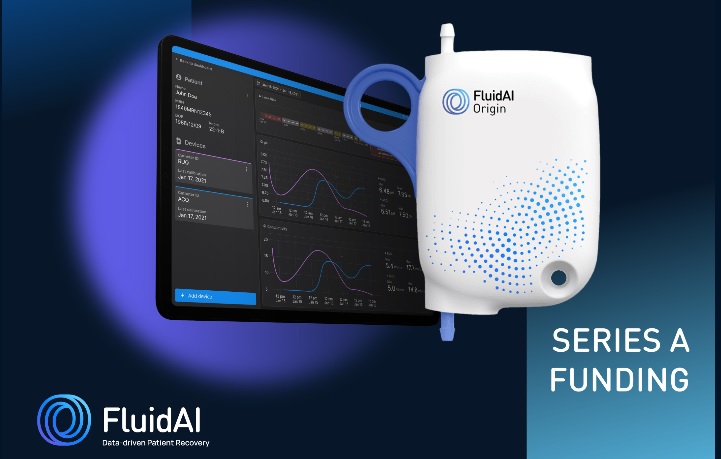Kitchener, ON – October 10, 2023: FluidAI Medical (FluidAI), a pioneer in leveraging artificial intelligence (AI) for postoperative patient monitoring, today announced that it has raised $15 million in Series A funding, led by SOSV and Graphene Ventures with participation from Boutique Venture Partners, Threshold Impact, Cur8 Capital, Leva Capital, Kyto Technology & Life Science Inc., Juno Pharmaceuticals, and a number of esteemed angels, funds and government funding organizations.
Following any surgical intervention, there are inherent risks of adverse outcomes, irrespective of how minor or major the procedure may be. These complications can range from infections, bleeding, and wound healing issues to significant disability or death. They not only jeopardize the health and recovery of the patient but also place additional burdens on the healthcare system, including prolonged hospital stays and increased medical expenses. Recognizing these complications early on is paramount for the comprehensive care of surgical patients.
Some of the most devastating complications that can arise after surgery are anastomotic leaks, which occur after surgery when there’s a connection (anastomosis) between two parts of the digestive tract. A leak from this connection can lead to serious complications, including sepsis (blood infection) and death. On average, the leak rate stands at 8% across various types of surgeries, but this can spike to as high as 30% in more complex procedures. The condition also comes with a concerning average mortality rate of 12%. Per 1,000 patients undergoing colorectal surgery in the United States, anastomotic leaks add an extra 9,500 days of hospital care and impose an average additional cost of about $50,000 per affected patient.

